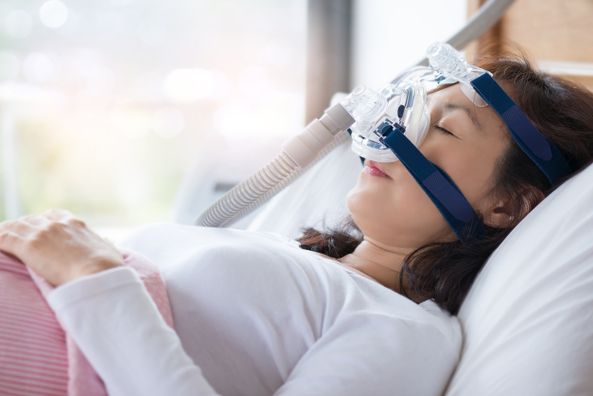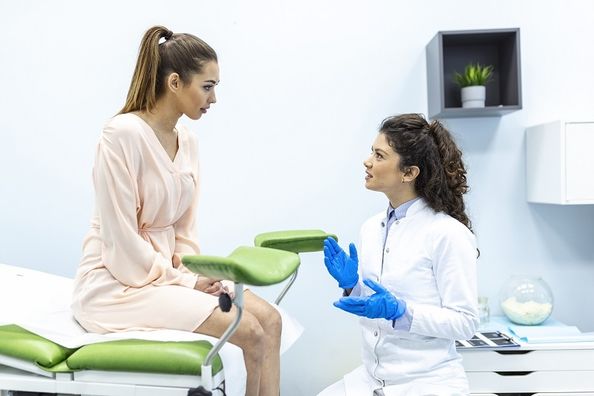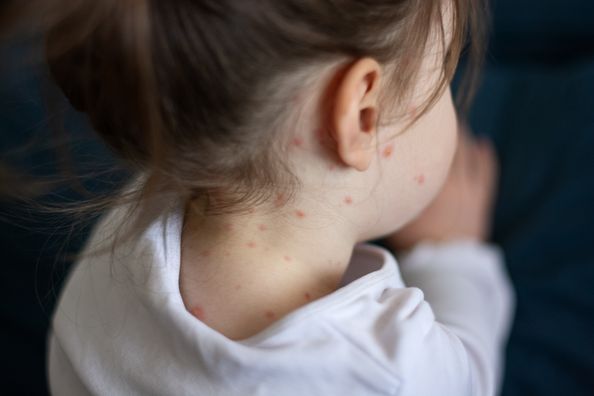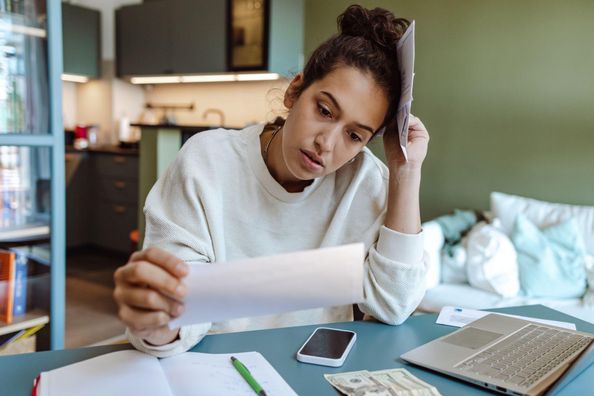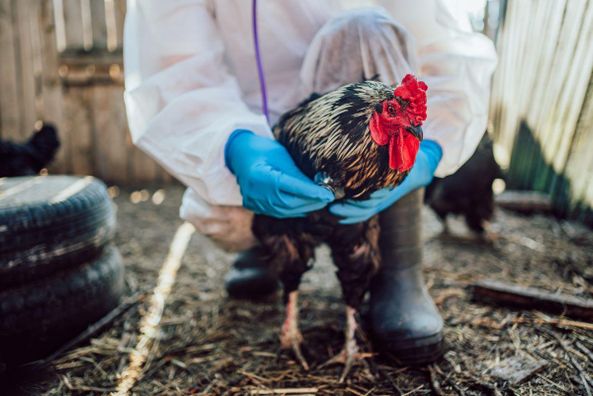A variety of tests including Polysomnogram, Multi-Sleep Latency Test ( MSLT) and Maintenance of Wakefulness Test (MWT) are all possible sleep studies your physician can order to evaluate your sleep patterns. The DMG Sleep Center is made up of private bedrooms and are similar to typical hotel rooms, with private bathrooms available for showering after the study is completed. The rooms are supplied with pillows, blankets, towels, washcloths and toiletries.
The Study
- A typical Polysomnogram includes the following measures:
- Brain waves (electrodes placed on the scalp)
- Eye movements (electrodes placed by the eyes)
- Chin muscle tone (electrodes placed on near the chin)
- Heart rate (electrodes placed on the chest)
- Leg movements (electrodes placed on the legs)
- Airflow (sensor placed near the nose and mouth)
- Breathing effort (two elastic belts placed around chest and abdomen)
- Oxygen saturation level (small sensor attached to the finger or ear lobe)
- Audio and digital video recording
Why is it necessary to record the above functions?
While you are asleep, the body functions differently than during wakefulness. Disturbed sleep such as pauses in breathing, snoring and lack of sleep consolidation can interfere with daytime activities, cause excessive daytime sleepiness and possibly lead to serious health problems.
How can I sleep or use the bathroom with all the sensors?
By providing a comfortable hotel like environment, we strive to make your stay at the Sleep Lab a pleasant experience. While many individuals worry that they will not be able to fall asleep during the test, most do and we usually obtain an adequate representation of your sleep patterns. In addition, the sensors and wires will not interfere with your ability to use the bathroom.
Will the sensors hurt?
No. This is a painless and non-invasive testing procedure. Paste is applied to your skin and scalp to keep the electrodes in place, but it is easily removed with soap and warm water.
What is CPAP titration?
For CPAP (Continuous Positive Airway Pressure) titration you will have the wires that were used for your diagnostic study. Also you will be asked to sleep with a CPAP mask over your nose. The mask delivers room air to keep your airway open. This test is used to determine the optimal pressure which will effectively treat your sleep apnea and snoring.
What is multiple sleep latency test (MSLT)?
An MSLT is a daytime sleep test which is sometimes performed in conjunction with an overnight sleep study. The test consists of a series of daytime naps which helps us better understand your sleep problem. Sensors and electrodes are used to record information similar to the polysomnogram. Naps are taken every two hours throughout the day. Please bring something to read or work to keep you occupied in between the naps. A television and a DVD player are available. Plan to spend the entire day possibly until 9:00 pm in the Sleep Center.
Is the sleep study covered by insurance?
Most insurance will cover sleep studies. We do recommend that you check with your insurance provider to be sure this procedure is a paid benefit under your insurance plan.
Prior to the sleep study
- Please arrive on time for your appointment. Unfortunately, if you are late you study might need to be rescheduled.
- Complete any required forms/questionnaires prior to your study date.
- Avoid caffeine or stimulants for 12 hours before your scheduled time of arrival at the Sleep Center, unless prescribed by the doctor.
- Maintain your normal sleep schedule until your test date. Please refrain from napping on the day of your study.
- Make sure your skin and hair are clean. Please do not use any hair products or lotions on the night of the study.
What to bring to the sleep center?
- Completed questionnaire, your medication list, any doctors’ orders, prescriptions or referral forms that you doctor has given to you. Present them to the technologist upon arrival.
- Your insurance card(s) and driver’s license or ID.
- You might bring your own pillow and comforter if that makes you more comfortable.
- Bedclothes are necessary. Please wear something comfortable such as gym shorts, loose lounge pants and a t‑shirt or pajamas.
- Any personal toiletries and a change of clothes for after the study.
- Any medications, both prescription and over the counter that you usually take prior bedtime. Technologists are unable to dispense any medications.
- If you require a snack before bedtime, plan to bring one with you. Do not bring dinner since you must be ready to begin testing when you arrive. If you are staying for the daytime nap studies, breakfast and lunch will be provided.
Please do not bring any valuables with you to the Sleep Center.
Health Topics:

